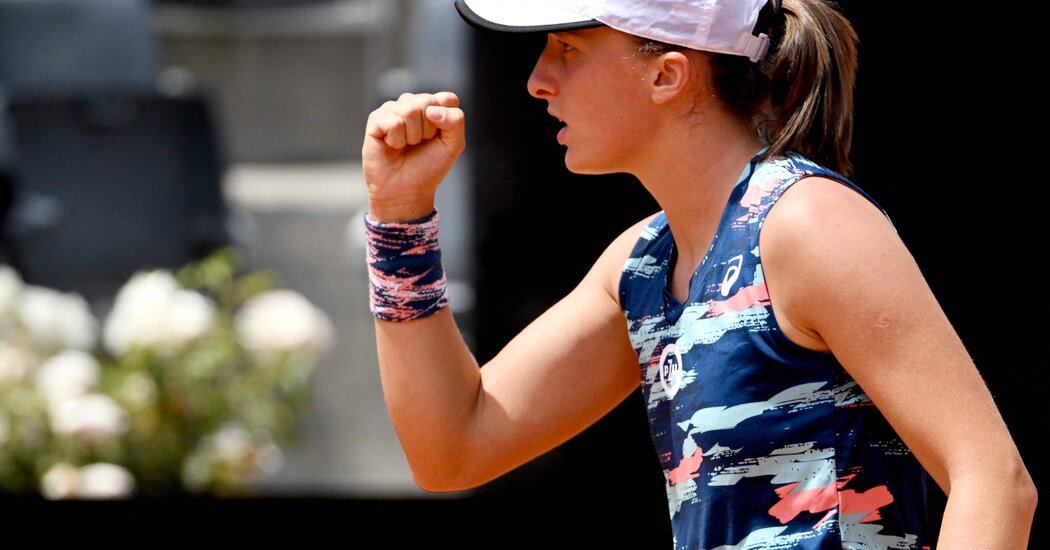
Djokovic, like his career-long reference points Nadal and Roger Federer, has underscored his passion with long-running excellence and by persistently ignoring the hints that his peak years might be behind him.
For Djokovic, this has been a season and a challenge like no other: His decision to remain unvaccinated against the coronavirus led to a standoff with Australian authorities that ended with his deportation on the eve of this year’s Australian Open, and it kept him out of the Masters 1000 events in Indian Wells, Calif., and Miami Gardens, Fla., in March.
But with the health protocols now relaxed in Europe, Djokovic returned to regular action on clay last month. Though he struggled in his initial matches with his timing and his endurance, he has slowly but convincingly resumed hitting his targets, and he has gathered momentum just in time for Roland Garros.
“I always try to use these kinds of situations and adversity in my favor to fuel me for the next challenge,” he said of Australia. “As much as I’ve felt pressure in my life and my career, that was something really on a whole different level. But I feel it’s already behind me. I feel great on the court. Mentally as well, I’m fresh. I’m sharp.”
Against Tsitsipas, the hirsute Greek star who pushed Djokovic to five sets before losing last year’s French Open final, Djokovic controlled most of the baseline rallies with as much patience as panache. When Tsitsipas failed to serve out the second set, Djokovic proved the more reliable force in the tiebreaker, perfectly content, it seemed, to wait for Tsitsipas to crack.
“To some extent, it’s a relief because after everything that happened at the beginning of the year, it was important for me to win a big title,” Djokovic said.